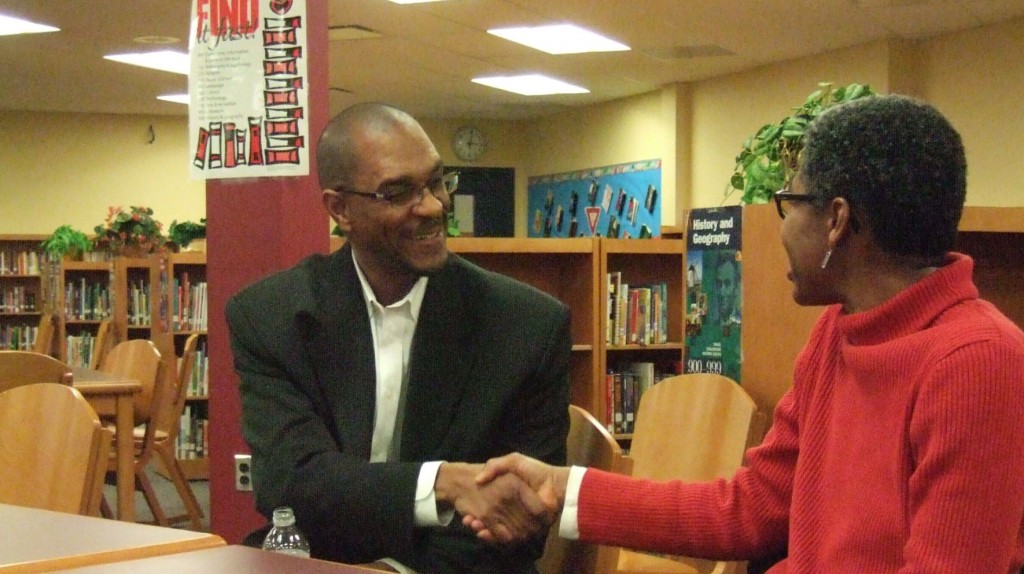
By Tara Cavanaugh
Daniel Varner, a member of the State School Board and executive director of Excellent Schools Detroit, visited Slauson Middle School for National African American Parent Involvement Day Feb. 13.
With a group of teachers and parents, Varner had a candid discussion about black student achievement.
Varner talked about possible solutions for addressing summer learning loss, improving early childhood education, preventing teachers from burning out and dealing with large class sizes.
Varner said ideally, class sizes would be more manageable so struggling students could get more individualized attention, perhaps together in groups. He called this idea “organizing by mastery”: students learning with other students at their level, instead of an entire class learning at one level or pace.
Slauson Principal Christopher Curtis agreed. “It’s normal to begin walking at six months; it’s also normal to begin walking at 18 months,” he said. “The fact that we have (academic achievement) tied to a birthday throughout thirteen years of education makes no sense to me.”
Varner also pointed out that schools can often be like a “black box,” leaving parents unaware of what their child’s education is lacking.
While some teachers may balk at the idea of allowing parents to walk into classrooms unannounced, Wines Elementary teacher Millie Fisher said parents are welcome in her classroom any day. “Parents should be allowed at any time,” she said. “How do we expect parents to make the home-to-school connection if they’re not welcome in the classroom?”
The group also discussed making learning meaningful and applicable to minority students’ lives. “Basically these kids go to school a lot like our grandparents went to school,” Principal Curtis said. “It’s structured the same way, and we all know that’s the way to do it. If it starts to look too much different from that, you start to get a lot of anxiety. But I think some of these things need to look radically different.”
Varner predicted that education would be structured differently in the future.
“I think we also have to be courageous enough to overcome our fear of difference, issues of race, culture, to have authentic conversations about that stuff and figure out how it plays into all of this,” Varner said, “because it’s clear that it does.”
Slauson wasn’t the only school to organize events for parents, students and teachers for NAAPID; many AAPS schools held assemblies, workshops or simply issued clear invitations to all parents to visit their students’ schools and classrooms. NAAPID is a nationally-celebrated event that was created in 1995 by Joseph Dulin, an AAPS educator, to highlight the successes and the achievement gap of African American students.
For Constance Pierson-Ramirez, one of the organizers of this year’s NAAPID events, the day is a way to support students. “It takes a village to raise a kid,” she said. “You have to have that support; it’s very important.”
Related story



1 Trackback / Pingback